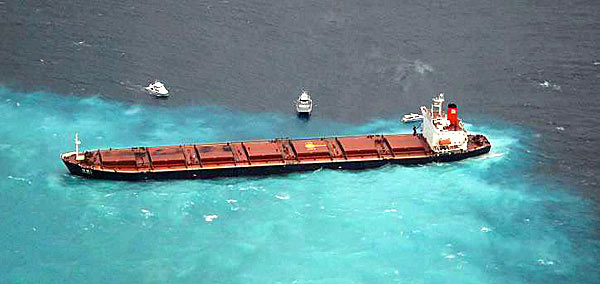
Fossil fuel export proposals explode around the world
With the reliance on coal declining in places like the U.S. and Australia, Big Coal has found another way to offload its dirty goods — by shipping it overseas. The global coal trade expanded by over 13 percent in 2010 and last year the U.S. hit a record in the amount of coal it shipped offshore. ClimateProgress reported that last year, US coal exports resulted in 292 million metric tons of carbon pollution “equivalent to the average annual greenhouse gas emissions from 55 million passenger vehicles, or to 75 coal-fired power plants — and in excess of the 2009 greenhouse gas emissions of the state of New York.” And the trend is expected to continue.
Not only are there four coal export terminals proposed in the Pacific Northwest (along with numerous efforts to increase exports of tar sands oil, LNG and oil shale out of the region) that we are fighting in coalition with Power Past Coal, there are massive fossil fuel export expansion plans in Australia where the proposals are to roughly double the volume of coal exports from the region.
Sadly, the Great Barrier Reef literally sits in the way of the fossil fuel industry and its massive expansion plans and has already suffered terrible damage from a Chinese coal ship grounding and subsequent oil spill in 2010. There are so many new coal terminals planned that just one port, Abbot Point, near Mackay, Queensland could increase almost nine-fold in capacity to become by far the biggest coal export port in the world.
Today, Market Forces and 350.org revealed the role of banks in financing this destruction of the Reef in a report, aptly titled Financing Reef Destruction. It brings together five years of data to identify the banks that have lent the most money to coal ports and liquefied natural gas plants inside the Great Barrier Reef World Heritage Area from 2008 to 2012.
You can download the report here.
The report draws attention to the critical role that the ‘big four’ Australian banks play in enabling new coal and gas projects to come online. Together, the biggest Australian banks – ANZ, Commonwealth Bank, NAB and Westpac – lent $3.8 billion to coal ports and liquefied natural gas (LNG) terminals between 2008 and 2012.
It isn’t just Australian banks financing Big Coal. The U.S. Export-Import Bank was behind the single-biggest loan to a fossil fuel export project in the Great Barrier Reef, the $2.8 billion credit to the Australia Pacific LNG project. This loan has become the subject of legal action over alleged violations of the U.S. Endangered Species Act.
In 2012 Ex-Im Bank provided a $90 million loan guarantee to Xcoal Energy & Resources, the U.S.’s leading coal export company. This deal puts U.S. taxpayers on the hook for Xcoal’s bank loans and perpetuates our global addiction to coal. In addition to coal export loans in the U.S. and Australia, Ex-Im Bank helped U.S. coal interests fund the giant Sasan coal power plant in South Africa in 2010 and in 2011 it financed the Kusile coal plant in South Africa — two of the world’s biggest coal plants.
In addition to Ex-Im Bank, China’s largest banks, including China Development Bank, China Ex-Im Bank, and Bank of China, have thrown their weight into financing coal ports and LNG plants. However, financing such dirty projects in an area considered to be one of the world’s natural wonders is certainly in violation of China’s own policies, which specifically mandate Chinese companies and banks operating abroad to protect the local environment and adhere to international safeguards. The notorious grounding of the Chinese coal ship in 2010, which was carrying 65,000 tons of coal to China, already signaled China’s indifference to safeguarding the extremely fragile ecosystem, and transforming the Great Barrier Reef into a super highway for coal shipped to China and Asia could mean disaster for the world’s largest reef system.
In the U.S. we have started to realize that coal, with its dirty impacts from mine mouth to smokestack, is a problem and not a solution — and it is certainly not a problem we should be exporting to the world.
Photo Courtesy of The Los Angeles Times
Related Posts
Ways to Support Our Work

Read Latest News
Stay informed and inspired. Read our latest press releases to see how we’re making a difference for the planet.

See Our Impact
See the real wins your support made possible. Read about the campaign wins we’ve fought for and won together.

Donate Today
Help power change. It takes support from environmental champions like you to build a more healthy and just world.